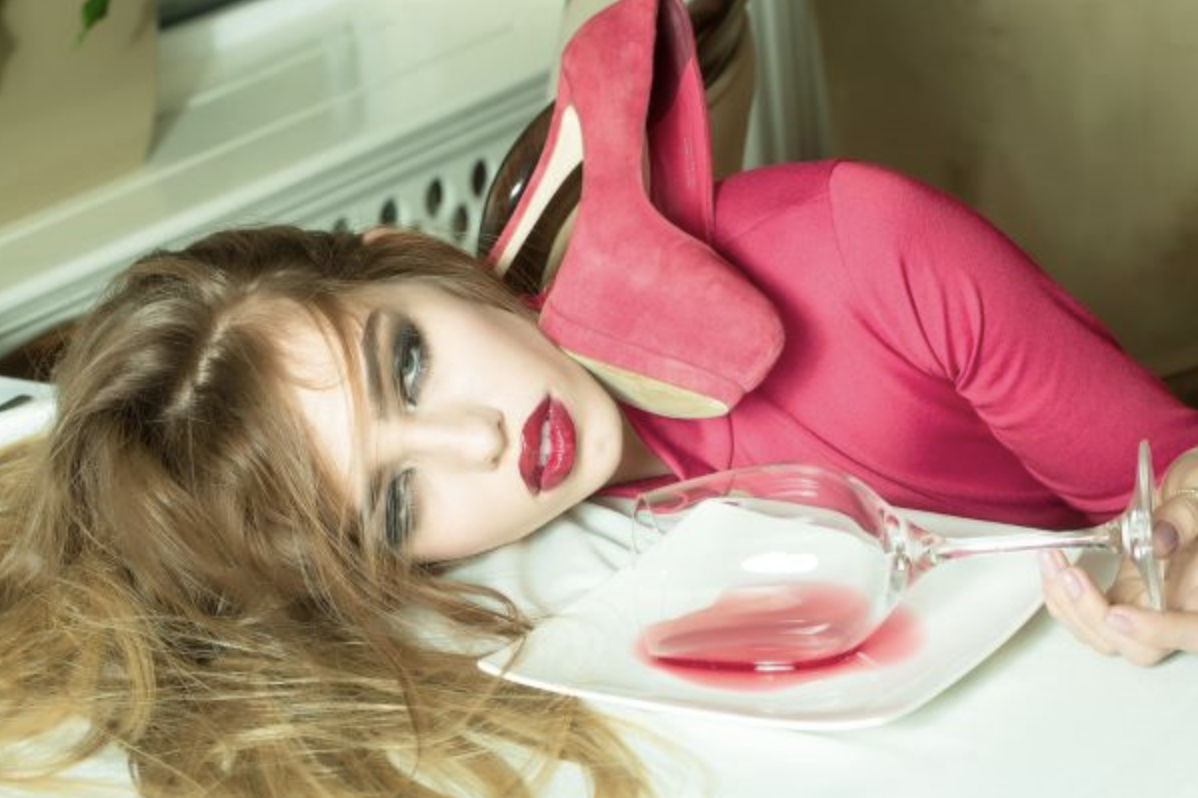DOES YOUR SKIN HAVE A HOLIDAY HANGOVER? What to Do When Libations Take a Toll on Your Skin
‘Tis the season…for eating…and drinking.
We’re all aware of the effects binge drinking can have on our health, but that doesn’t stop most of us from overindulging during the party season. What many people don’t realize is that drinking alcohol in excess can have a negative impact on our appearance. Alcohol dehydrates your body including the skin, your body’s largest organ. This happens every time you drink. Extra cocktails can be adding years to your face in the form of wrinkles, poor texture and lack of radiance.
Dr. Gretchen Frieling is a Boston Area Board-Certified Dermatopathologist. She explains that frequent alcohol consumption is also thought to deprive the skin of vital vitamins and nutrients. “Over time, drinking heavily can have other, more permanent, detrimental effects on your skin. Rosacea, a skin disorder that starts with a tendency to blush and flush easily and can eventually lead to facial disfigurement, is linked to alcohol. Since alcohol increases your blood flow, it often causes blood vessels in your face to dilate (sometimes permanently) and often burst, leaving behind broken capillaries and red spots that are difficult to get rid of,” offers Dr. Frieling.
Here’s a look at what alcohol can do to wreak havoc on your appearance
Brittle hair.
What’s worse, drinking too much doesn’t only affect the appearance of your skin; it will dehydrate your hair, making it more prone to breaking and split ends. Weak, brittle hair in addition to premature wrinkling, can easily add 10 years to someone’s appearance.
Dark circles, bloodshot eyes, and even blindness.
In much the same way that alcohol causes broken capillaries on your face, it irritates and enlarges the tiny blood vessels on the surface of your eye (the sclera) causing a “bloodshot” appearance. If vanity doesn’t get your attention, how about blindness? “Because excessive drinking robs the body of some nutrients required to maintain eye health, it can lead to a condition called alcoholic optic neuritis, which impairs eyesight and, over time, can result in blindness,” cautions Dr. Frieling.
Some tips to avoid a “skin hangover” include…
1. Stay hydrated.
Aside from giving up booze altogether, Dr. Frieling says it is possible to minimize the unwanted effects of alcohol by constantly staying hydrated. “That means drinking a full glass of water for every cocktail you have. Drink even more water before you go to bed to flush the alcohol out of your system so you wake up less dehydrated, puffy and flushed,” she advises.
2. Take care of your skin before bed.
Taking care of your skin before hitting the sack is also crucial. Dr. Frieling advises fully washing your face and then applying a moisturizer, like a hydrating serum before getting into bed. “Sleeping with dirty skin makes it prone to clogged pores and acne.”
3. Prop pillows and use tea.
One of the best ways to minimize the eye and face puffiness is to sleep on two pillows, slightly propped up. In the morning, rubbing ice cubes all over your face helps, too. “One of the best ways to deflate eye puffiness and reduce the redness is to place cold tea bags over the eyes. The tannins in the tea help constrict blood vessels,” adds Dr. Frieling.
4. Cover up what you can’t cure.
To camouflage the redness in the face, use a green-tinted primer before applying makeup, which should help neutralize any redness. If you must use foundation, look for a lightweight, moisturizing formula. Avoid powders, as they are often more drying.
5. Consider lasers.
When at-home remedies aren’t making much of a difference. There are pricier measures you can take to minimize the effects of alcohol. “Certain laser treatments can reduce redness and spider veins on the face. It’s important to see someone who is well trained to administer the laser treatment,” suggests Dr. Frieling.
6. Choose your booze wisely.
If you are going to consume alcohol know that different alcohols have different effects on the skin, but as a general rule, the clearer, the better. Vodka, gin, and tequila leave your system quicker. “If you’re going to drink anything, drink vodka that doesn’t have a grain in it, like potato vodka. It’s a lot clearer and smoother, so it gets in and out of your body quickly,” says Dr. Frieling. Most dermatologists agree that although everyone metabolizes alcohol differently if you can remember to drink in moderation and stay hydrated, you can save your skin.
Board-Certified Dermatopathologist Dr. Gretchen Frieling
Boston Area
Dr. Gretchen Frieling (“Dr. G”), MD is a Harvard-trained, board-certified Dermatopathologist, with over 10 years of experience in Medicine and Dermatopathology. With a background notable for intensive ballet, including the Juilliard School, Dr. G combines her artistic eye, perfectionistic qualities, and medical expertise, to give her patients the ability to be better versions of themselves. Dr. G has an extensive academic background, including numerous publications in peer-reviewed medical journals, selected Editor of medical journals, an author of noteworthy medical textbook chapters, an educator at the Harvard Medical School, and speaker at many national medical conferences.
When it comes to non-surgical cosmetic procedures, Dr. Frieling has mastered the art of re-defining and re-vitalizing the face by eliminating fine lines, wrinkles and re-establishing volume with a minimalistic approach. She is the founder and CEO of the GFaceMD luxury medical skincare line. GFaceMD is a unique, boutique, client-focused aesthetic practice, with a mission to optimize beauty through advanced micro enhancement techniques with the utmost professionalism, education, and confidentiality. Services include injectables from neurotoxins to dermal fillers, fat dissolving treatments, collagen-stimulating treatments, laser treatments, medical facials, microneedling, chemical peels, dermaplaning, and more. Along with splitting her time as a practicing Dermatopathologist, Dr. Frieling enjoys spending time with her husband, her two kids, and extended family, as well as volunteering in the community. She is an avid philanthropist, serving as a judge in the Miss Pink Organization, an active member of the Juvenile Diabetes Research Foundation, and a contributor to many non-profit organizations, including My Life My Choice and St. Jude.


Speak Your Mind